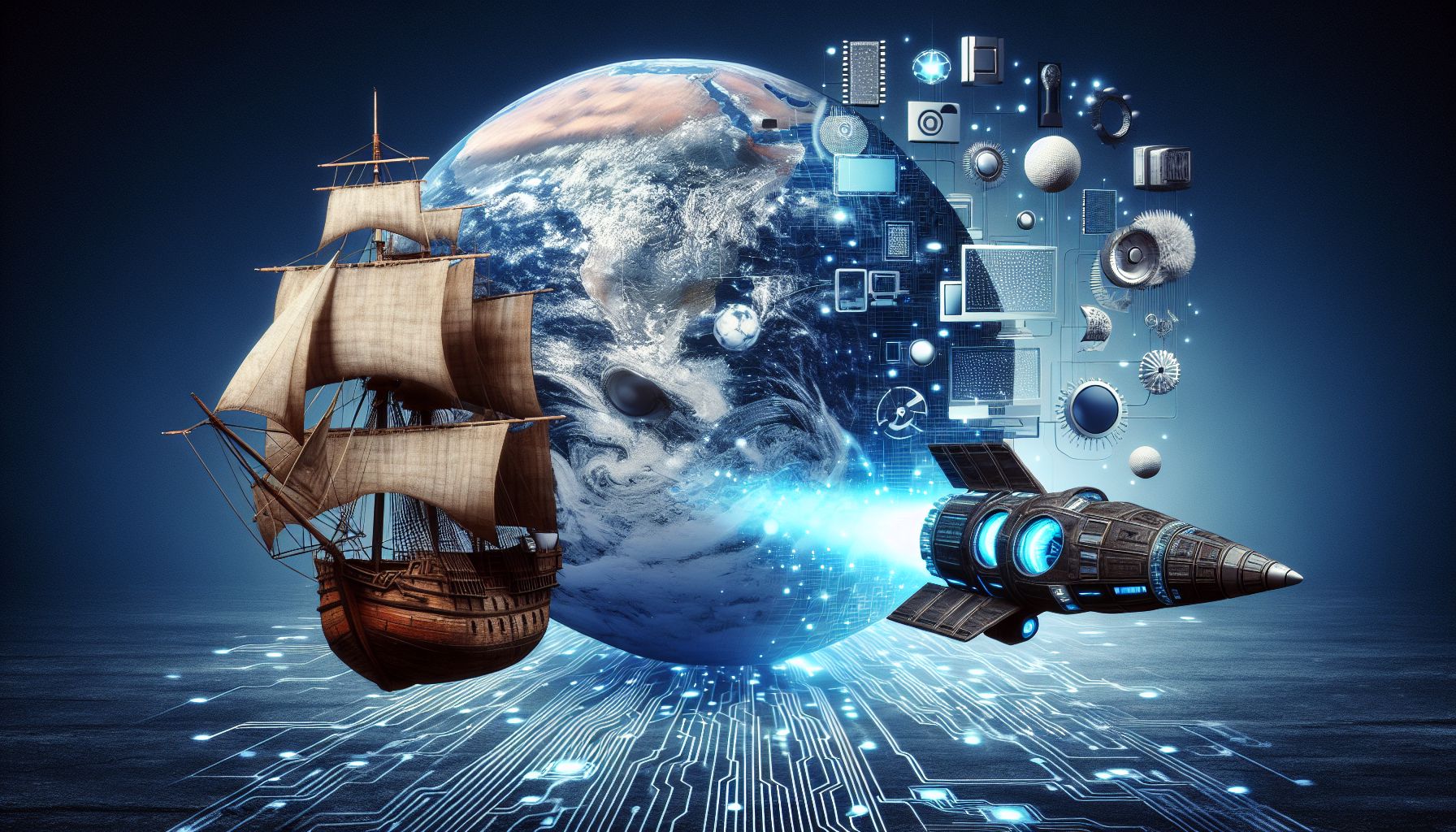Nothing in this era quite encapsulates the spirit of boundless exploration and boundless imagination as perfectly as the fusion between travel and technology. A subtle dance between discovery and invention that promises to usher in an age of diversified experience and knowledge exchange, one where trips and adventures evolve hand in hand with technological advances. In this post, we unravel the unique compatibilities between these seemingly disparate realms and the nuances that make this marriage a global game changer.
 We are undeniably living in what is often referred to as the ‘age of technology’. This ever-evolving arena has percolated into almost every imaginable sector, and unsurprisingly, travel is no exception. The amalgamation of technology in the world of travel spans everything from planning and reservations, to the literal journey, and every experience thereafter.
We are undeniably living in what is often referred to as the ‘age of technology’. This ever-evolving arena has percolated into almost every imaginable sector, and unsurprisingly, travel is no exception. The amalgamation of technology in the world of travel spans everything from planning and reservations, to the literal journey, and every experience thereafter.
Booking portals powered by algorithms, virtual reality tours, biometric-enabled seamless hotel check-ins, and digital wearable guides are already transforming the way we travel. Augmented reality, for example, enables travelers to explore destinations virtually before they even step foot in the location. This fosters a more immersive experience, making travel more accessible, and indeed, inviting to the masses.
According to Gartner, Smart luggage is posed to streamline airport experiences. Featuring GPS tracking, self-locking capabilities, and self-weighing features, these suitcases are an embodiment of merging tech and travel. In a similar vein, ‘Digital twins’ – a growing field that involves creating a digital replica of a physical entity are being implemented to model and try out different travel scenarios to optimize operations and enhance the travel experience.
Moreover, advancements in transport technology, like Hyperloop, the high-speed transit system, pave the way for increasingly efficient and quicker travel. According to Virgin Hyperloop, passengers onboard their pods could go up to 760 mph, making a journey from Los Angeles to San Francisco possible in just 45 minutes. Imagine what such leaps could mean for our view of distances and our approach to travel.
Furthermore, technologies like Internet of Things (IoT), biometrics, artificial intelligence (AI), blockchain, 5G, and robotics are lending speed, security, and efficiency to every aspect of travel.
However, the intersection of technology and travel is not just about better logistics and more immersive experience. It also opens windows to incredible engineering feats, such as space tourism. Commercial space companies like SpaceX and Blue Origin illustrate that the frontier of travel is expanding beyond our current world, into the vast expanse of space itself.
On the flip side, trends like ‘slow travel’ remind us of the paradox that while the world is getting smaller and more interconnected through technology, the desire to thoroughly understand our world on a deeper, more unhurried, and personal level has never been stronger.
In conclusion, the incredible convergence of technology and travel continues to redefine our experience of finding, planning, and embarking on new adventures. From wearable technologies that curate personalized experiences to VR-guided tours allowing us to travel from our couches, the possibilities seem endless. The future of travel looks exciting with technology steering the wheel. Perhaps, in the not-too-distant future, teleportation can become a mundane reality. This constant evolution and fusion of travel and technology promise an exquisite symphony of exploration and innovation. So, fasten your seatbelts and embrace for the ride. The future of travel is not just here—it is constantly evolving, with every passing tech development, seed of inspiration and collective yearning to explore.


